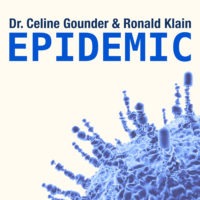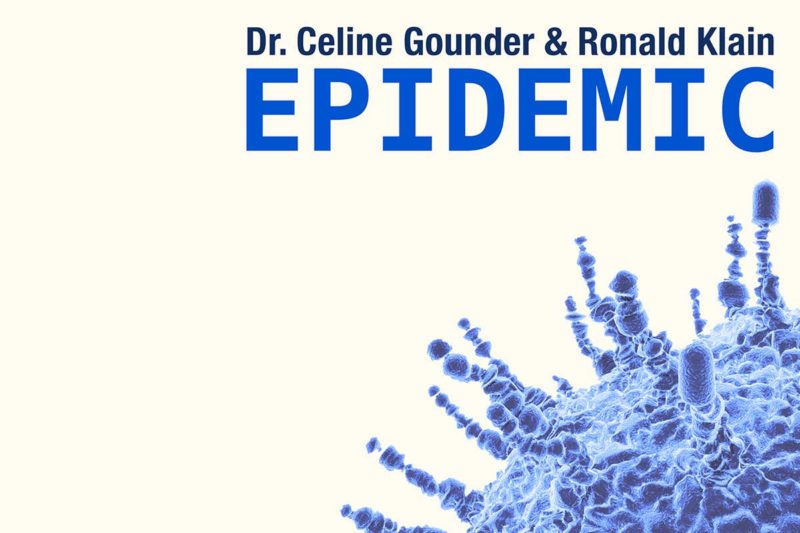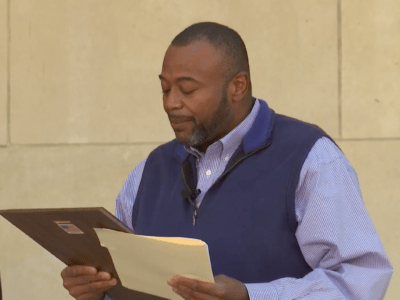
On the EPIDEMIC Podcast, co-hosts Dr. Celine Gounder and Ron Klain discuss the impact of COVID-19 on people experiencing homelessness with CEO Rosanne Haggerty, Built for Zero co-director Jake Maguire, and CEO of Jacksonville, Florida’s Sulzbacher Center Cindy Funkhouser.
Below, we’ve included some excerpts from their conversation:
For many of us, the COVID pandemic has meant staying at home and social distancing, but how are people supposed to shelter in place when they don’t even have a roof over their heads? Rosanne Haggerty is the founder of Community Solutions in New York. She says the coronavirus is laying bare some of the hard truths about homelessness in this country.
RH: One of the things that is often forgotten is that for most people, homelessness is a brief and personally resolved experience. It does not become a way of life and even in communities with very high rates of homelessness, it represents a relatively small fraction of the population we have seen over and over again. The need to kind of break this myth that it’s about individuals and their problems. It’s so plainly a public health issue of a system that’s failed.
The risk of massive new homelessness is happening across the country as eviction moratoria are lifted…it’s also a moment to see landlords as potential allies and finding local solutions. We are just needing to find a kind of common cause with nontraditional partners around making sure that prevention of homelessness becomes a collective responsibility in communities, whether that means working out payment plans or connecting the dots between different organizations and resources.
The need for data on people who are experiencing homelessness is more important now than ever. In the U.S., though, we measure homelessness only once a year with volunteers going out and counting the homeless on a single night. In January, they walk the streets block by block and take a tally. But this method often undercounts the number of people who are experiencing homelessness and certainly can’t tell us what’s going on in the country right now, but Community Solutions has an alternative approach.
JM: Homelessness changes every day, right? It’s dynamic. A number from 11 months ago doesn’t really tell you much about what’s happening in your community now. Even if you did have a good number, that number is completely anonymous, so it doesn’t actually tell you anything about who you’re dealing with or what those people might need to get out of homelessness. So you’ve got to have real time data, not data once a year. I think that’s never been clearer than right now in the midst of this COVID-19 pandemic.
Stay at home and shelter and place orders are impossible to follow if you don’t have a home. COVID has highlighted the cracks in our social supports for people experiencing homelessness. Where are people supposed to go if the shelters are crowded, if they don’t feel safe, if they’re afraid of getting coronavirus in the shelters?
JM: There is a ton of vacant hotel and motel space in communities right now. So, there are ways to repurpose that space to stand up rapidly quarantine and isolation units for people experiencing homelessness, especially when social distancing means we have to spread people out in our shelters and we can accommodate far fewer people in congregate settings like that. But that raises its own host of other challenges. I mean, okay, how do we secure those hotels? What about insurance? You know, this is sort of a change of use maybe for hotels. Are they going to be comfortable turning their hotels into sort of mini hospitals or sick facilities? Who’s going to staff all these units? You know, we’ve got trained street outreach workers. That doesn’t mean they’re prepared to do clinical work in units. What about PPE? Even the hospitals can’t get enough personal protective equipment, so these are the challenges that communities are confronting right now as they try to figure out how to help keep people safe.
Cindy Funkhouser…is the CEO of Sulzbacher Center in Jacksonville, Florida. She’s been working to get permanent housing for people who are experiencing homelessness. The Sulzbacher Center provides a wide range of services including health care, mental health and substance abuse treatment, GED classes in daycare for their clients. They’re trying to give people the help they need to get back on their feet, but these days Cindy and her colleagues are focused on the most basic of needs, trying to give people a safe haven in the middle of a pandemic.
CF: It’s scary for everybody, but imagine yourself being someone that can’t socially isolate, that has no home, that doesn’t have a TV and doesn’t know what’s going on, and all of a sudden everyone has disappeared from the downtown city of Jacksonville. There’s not a lot of residents in our downtown except for homeless people. So when everybody disappeared and it’s like a ghost town, I can only imagine the anxiety level of those folks. Like many health care providers, the Sulzbacher Center has struggled to provide coronavirus testing to its patients, but the stakes are even higher when you’re working with people who are homeless in a shelter environment, because it’s communal living. If it starts going through a shelter, we’re in very big trouble, because it would be almost impossible to stop.
The Sulzbacher Center recently began testing the homeless population in Jacksonville for COVID. So far, they have not found positive cases, but they’re collaborating with other organizations and the hotel industry to put a plan in place in case there’s an outbreak.
CF: It’s really the closest that the homeless providers have ever worked together. We’ve always had good collaboration, but it’s really, we’re in lockstep now and it is just the homeless providers either. It’s the Jacksonville Sheriff’s office, it’s the hospitals, it’s across sector. It’s our Jacksonville transportation authority. So we have a real good cross sector of people working on that task force.
We’re flying in the dark in the absence of a cure or a vaccine. Our most important weapon against the virus is to test those at risk and block spread to others. But that’s hard to do when you don’t know who someone is, when you don’t know where they are.
JM: Anonymity is the most lethal thing about homelessness. It’s the fact that we lose track of people. We forget they’re out there. We don’t know who they are. If you’ve got your arms around somebody in this kind of situation, don’t let them go until you can be sure that they’re in permanent housing. I think that is the rallying cry right now.



